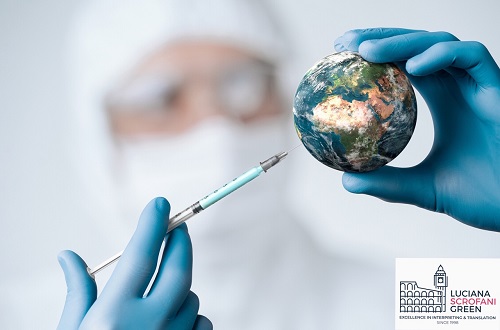The race to develop a Coronavirus vaccine is well and truly on.
Already there are at least 159 potential vaccines in development, and seven of those are undergoing first-stage trials. It’s a huge step forward in combating the virus, and as we grow ever more restless and eager to move from the “new normal” back to normality - a move which is widely accepted to be almost impossible without an effective vaccine - pharmaceutical companies across the globe are under immense pressure to deliver results and fast.
One of the companies I have recently worked with is global biopharmaceutical company AstraZeneca, which hit the headlines after announcing a landmark partnership with the University of Oxford for the further development, large-scale manufacture and potential distribution of the Covid-19 vaccine candidate currently undergoing trials by the University.
This potential vaccine entered Phase One clinical trials in late April, to study its safety and ability to generate good immune responses against the virus in healthy volunteers aged 18 to 55 years. Data from the Phase One trial could be available as soon as this month, and if successful, advancement to late-stage trials should take place by the middle of this year.
Elsewhere across the globe, French pharmaceutical giant Sanofi, which has offices in more than 70 countries worldwide, has announced that it has teamed up Britain's GlaxoSmithKline (GSK) to work on a vaccine. And in the US, the first results from human trials for a vaccine by Moderna have shown that each of the participants in its preliminary safety study produced an antibody response on a par with that which is seen in people who have had the disease. There’s plenty of reasons to be cautiously optimistic.
It’s clear that developing a vaccination against Covid-19 is an international effort, in which we’ll likely see cross-border medical and pharmaceutical collaboration unlike anything that has come before. For example, part of the AstraZeneca agreement is that it will work with global partners on the international distribution of the Oxford vaccine should the potential candidate prove successful. For that, companies will require flawless interpretation and accurate translation from professionals with a sophisticated knowledge of medical terminology and the pharmaceutical sector.
Interpreting and translating complex medical language can be a challenge, but it's also hugely rewarding to work for companies that are so active in the global effort against Covid-19 and making a real difference. If you're in need of a medical interpreter with a sophisticated knowledge of the pharmaceutical sector, don’t hesitate to get in touch.
Here's to finding a cure for Covid-19.
